If you’ve ever talked a little too loud or worn muddy clothes out in public as a child, you’re probably familiar with the old scold: “Don’t be so low class.” Whether it was delivered by a parent or caretaker, or another kid on the playground, those words stung. You learned very quickly that “low class” was equated with crass behavior — behavior you didn’t want to be associated with.
However, growing older, you probably noticed that some of the markers of “low class” were simply unfair, targeting people who shop on a fixed income, favor discount stores, or require assistance from the government to help make ends meet.
Find Out: I’m a Financial Advisor: Here’s Why My Rich Clients Identify With the Middle Class
Try This: How To Get $340 Per Year in Cash Back on Gas and Other Things You Already Buy
The ways in which “low class” is defined culturally touches on everything from etiquette, finances, careers, and very personal beliefs about how people should interact with others. GOBankingRates did a broad range of research to understand 50 habits that society considers low class — both fair and unfair assessments.
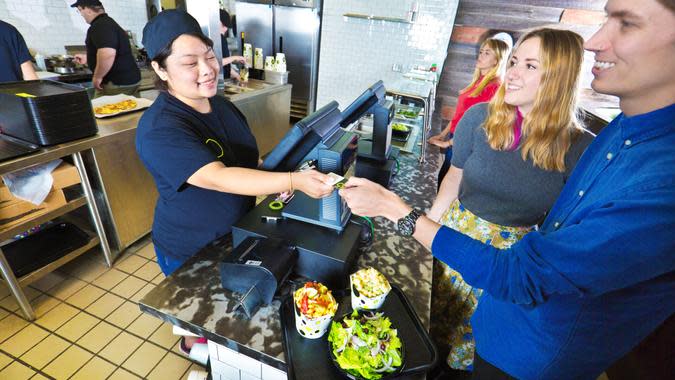
Being Rude to Service Staff
Being rude to wait staff and other service staff is seen as a bright red flag in any dating advice column, and for good reason. How you treat people who aren’t in a position to clap back speaks volumes of your character.
When users in the Ask Men Reddit were encouraged to consider the top signs that “scream low class,” being rude to servers and other wait staff was a top choice. One woman referred to her own husband, who told her not to thank a busboy, as a “dirtbag.”
Be Aware: Toilet Paper to Discontinued Items: 7 Ways Shrinkflation Has Come to Costco
Explore More: A $150K Income Is ‘Lower Middle Class’ In These High-Cost Cities
Sponsored: Protect Your Wealth With A Gold IRA. Take advantage of the timeless appeal of gold in a Gold IRA recommended by Sean Hannity.

Haggling With Cashiers or Food Service Workers
While vendors at a flea market or antique fair might expect a little price negotiation, the cashier at McDonald’s decidedly does not. Another Redditor in that same Ask Men thread said that trying to haggle with a cashier or other food service workers about a price — as if they seriously control it — is the utmost in low-class behavior.
The 1.5k upvotes they received indicate that they are far from alone in this opinion.
Find Out: Net Worth for US Families: How To Tell if You’re Poor, Middle Class, Upper Middle Class or Rich

Trying To Live Above Your Means To Impress Others
Chiming in to the Reddit thread about low class behavior, one man shared the story of a co-worker who shamed his wife over her purse, flouting her own designer brand. While the storyteller felt his wife’s pain over being mocked, they remembered their financial goals involved saving for a house. When they picked up this co-worker for an outing, they found that, for all her smugness about owning a luxury purse, she kept it in a grungy basement apartment.
“In that moment all of the embarrassment I felt for my wife regarding her purse story disappeared. Wife and I have our priorities aligned,” he wrote.

Posting Online Drama
Maybe you’re really angry at a former friend or ex-partner. Maybe you’ve got to lash out at some co-workers you think did you wrong. It’s better to save it all for a journal instead of your social media feeds, since employers can sip the tea you’re spilling online. According to Business News Daily, many employers factor an employee’s social media presence when deciding on new hires.

Operating Only in Cash
Tales of grandparents who might have stuffed cash under their mattresses may raise eyebrows today. As the ubiquity of ATMs and 24/7 accessibility of online banking has made connecting with your bank easier than ever before, only using cash can be looked down upon.
According to a Critical Financial article about financial habits that are often viewed as lower class, using cash only and avoiding banking services can be seen “as a sign of lower economic status.” However, the article reminds readers that “the stereotype overlooks personal choices regarding finances … and a person’s potential desire for financial privacy and control.”

Enjoying Fast Food
Fast food is seen as a choice that is as unhealthy as it is cheap, so “bad for you” that only people with no other option would enjoy it. Clearly, these people have never enjoyed French Fries with a perfect salt-to-grease ratio.
The Critical Financial article shares that, though McDonald’s and KFC are seen as “low-class” dinners, middle class people — who may have more disposable income, but still can’t afford fine dining — actually consume the most fast food.

Not Being Financially Transparent With Your Partner
Relationships are built on trust and there are some issues that couples must be aligned – chief among them, money. Not being honest with your partner about money habits that can impact both of you, like secret spending or debts, can be considered “financial infidelity” that violates trust and causes distress, according to recent reporting from GOBankingRates.
Read Next: 6 Reasons the Poor Stay Poor and Middle Class Doesn’t Become Wealthy

Maxing Out Your Credit Cards
As a trauma-informed finance professional at the Money Mindset Hub, Alejandra Rojas thinks a lot about mentalities around money. She said that maxing out credit cards without making timely payments can be stigmatized as “low class” in the culture at large.

Having a Low Credit Score
Credit scores are among some of the more emotionally-wrought parts of people’s financial histories. They can help control where you’re able to live, what kind of car you can drive, and even what kinds of jobs you can have. Rojas added that low credit scores are often unfairly characterized as a sign of someone being “low class.”

Lack of Savings
A lot of financial advice focuses on how to save more effectively, but what do you do if you simply don’t have enough to put into savings? Having no savings accounts might be seen as low class; however, Rojas said that saving money might not be a priority for people who have to stretch a smaller income.

Pursuing Short-Term Satisfaction Over Long-Term Goals
The tale of the ant and grasshopper has lasted the test of time because of its powerful message about the importance of saving for lean times instead of recklessly pursuing pleasure. Though it’s tempting to think of people who overindulge on everything that catches their eye as the frivolous grasshopper, Rojas said that there can be a thought process behind this spending.
She said that people who prioritize immediate satisfaction over long-term planning might believe that they’ll never have a chance at making this purchase again, so they have to do it now.

Shopping at Discount and Secondhand Stores
While certain people love to look down their noses at others who get their clothes at secondhand shops or shop for groceries at discount stores, they’re letting snobbery get in the way of smart shopping.
“This is often seen as a sign of economic struggle, but it’s actually a practical approach to budgeting,” said Rojas.
For You: Here’s What the US Minimum Wage Was the Year You Were Born
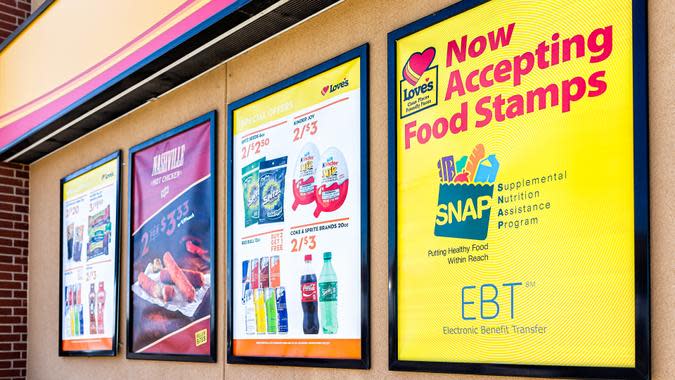
Using Benefit Stamps
Relying food-related benefits to get groceries can be dismissed as low-brow or low-class. For Rojas, using these available resources is actually a sign of smart planning. “While sometimes stigmatized, this behavior is a legitimate method of managing finances,” she said.

Relying on Pawnshops
In almost every on-screen depiction of pawnshops, they’re shown as seedy establishments only fit for the underworld. In real life, everyday people go to pawnshops to help buttress their finances.
“These are common in communities with limited access to traditional banking services,” said Rojas.

Borrowing Money From Friends and Family
While the stigma around people who ask for aid from friends and family is that they’re moochers who go around hat-in-hand, there’s a much more positive way to interpret showing enough vulnerability to ask for help. Rojas said that being able to get assistance from your friends and family can actually indicate the presence of a supportive community.
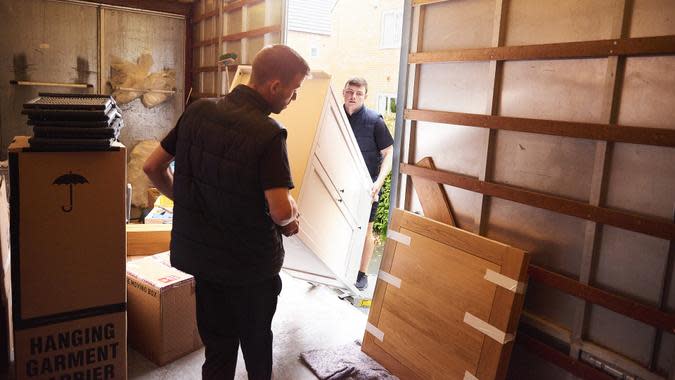
Renting Furniture
Sure, having an Instagram-worthy living room with luxury furniture would be lovely. But for many people, this simply isn’t an option. Renting furniture to fill a space shouldn’t be frowned upon, when Rojas pointed out that it can be a practical solution when upfront cash is limited.
Be Aware: 6 Industries That Won’t Exist by 2040
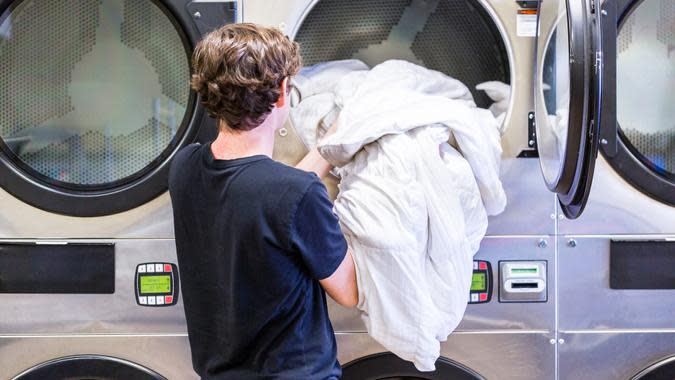
Using a Laundromat
Having an in-house washer and dryer may either sound like the ultimate luxury, especially if you rent, or a feature that you’ll simply take for granted in a home. It’s still out of reach for many people who simply can’t afford to purchase or repair these machines and instead, rely on laundromats to clean their clothes and bedding. Rojas said that using a laundromat is another practical solution when you’re dealing with limited cash.

Having Negative Attitudes Toward Money
Your relationship with money can often be shaped by past experiences, and seeing money as the source of your problems instead of a resource or solution can indicate that you’ve had your share of struggles. To help evolve beyond painful or limiting views around finance, Rojas encouraged people to consider their emotional patterns regarding money.

Dismissing Opportunities Right Away
If your response to any new opportunity to grow your wealth, from looking for a new job to investigating investing, is a sigh and a head shake because you assume that any attempt to earn more or have a more comfortable life will inevitably fail, you’ll get stuck in a financial rut. Never growing beyond your current station in life can be seen as a sign of being in a low class mentality, said Rojas.

Relying on Public Transportation
Cars are seen as a sign of stability, the ways that we get to every part of our lives, from work to play and back again. Not having a car can be viewed as not having a key piece of your financial life in place, according to the Critical Financial article.

Living in a Multigenerational Household
As housing becomes more expensive, many people are returning to live with parents and grandparents, adult children, or other family members. Living in a multigenerational house might be seen as a sign of economic setback, but according to the Critical Financial article, “other factors (like strong familial bonds, seniors in need of care, and cultural traditions) may also play a significant role.”
Discover: What Income Level Is Considered Middle Class in Your State?

Using Profanity in the Workplace
Look, everyone’s been there: A day when you just want to close your office door and let out a big ol’ swear word. Nonetheless, with office politics still skewing relatively conservative, expressing yourself in expletives, however well-earned, might diminish how your peers see you.
An article on Femunity.com addressed the issue directly, stating, “However, traditional standards of ‘professionalism’ tell us that swearing is a big no-no at work and doesn’t reflect well on team members. Some organizations have zero tolerance for swearing.”

Performing Your Own Home Repairs
The ability to pick up a phone and dial a handyman or contractor to come over and make professional repairs to your home would be ideal. But for people who live in the real world, it’s often simply not possible. Taking the DIY route might be seen as a cheap, low-class option; still, the Critical Financial article suggests that “frugal middle-class homeowners and those interested in self-reliance, skill development, and personal achievement all make potential DIYers.”

Choosing Work Over Education
“Choosing paid work over further education is often viewed critically, and the assumption can be that the individual cannot afford or see the value in greater learning opportunities,” wrote Bob Jameson, author of the Critical Financial article.
He added that these assumptions about people who choose to focus on their jobs instead of education deny them their personal preferences and agency, while demeaning the value of useful skills and trades like carpentry and plumbing.

Working in a Manual Labor Job
People often make a lot of assumptions about blue collar laborers, starting with the fact that they never earn more than minimum wage. But according to Indeed, some blue-collar jobs can bring in a lot of green: Elevator installers and repairers, for instance, earn roughly $99,000 in median salary per year.

Feeling Constantly Anxious About Making Ends Meet
As personal finance experts, James and Naomi Strong understand a lot about the emotions people can have around money. She said that it’s common for people who might be considered lower class to face higher levels of stress and anxiety.
“Constant worries about making ends meet, managing bills, or dealing with job insecurity can severely affect mental well-being,” she said. “While stress and anxiety are not limited to any specific social class, they often weigh heavier on those experiencing financial hardship in the low class.”
Read Next: How Far a $100,000 Salary Goes in America’s 50 Largest Cities

Not Wanting To Gain Financial Literacy
Learning about finance is one of the fastest ways to build better money habits, lift yourself out of debt, or achieve other major goals. However, you have to be willing to start. Many people who have been considered low class or low income can feel defeated before they begin.
“Limited financial literacy is a typical habit among low class individuals. When they fail to manage money effectively, it leads to difficulties in budgeting, saving, and making informed financial decisions,” said the Strongs. “This lack of knowledge often stems from a lack of access to education or resources, which can be more prevalent in lower socio-economic groups.”

Not Prioritizing Health
When your mind is preoccupied with money woes, there’s not a lot of room for the body in the mind-body equation.
According to the Strongs, not taking care of your health can be an indicator of class-related struggles. “When individuals are tight on cash or resources, it’s tough to put healthy living first. They might find themselves reaching for the cheapest foods, skipping workouts because time or money is tight, and pushing off those check-ups,” they said. “It’s like living life on hard mode – and it’s a common story for those in the low class.”

Relying on Public Assistance
“Relying heavily on public assistance programs is a common habit among individuals in the low class. These programs offer critical support for essentials such as food, housing, and healthcare during times of hardship,” said the Strongs. “However, depending extensively on them emphasizes a lack of financial stability and resources, which points to individuals of the low class.”
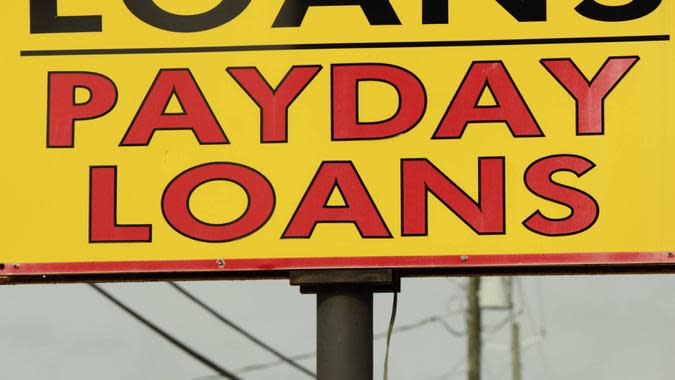
Using Payday Loans
Relying on alternative financial services like payday loans can be a habit that becomes ingrained among people with lower economic status.
“When traditional banking services are inaccessible or credit is hard to obtain, these options become go-to solutions for quick cash,” said the Strongs.

Speaking Loudly in the Office
You might think that simply having a loud voice or an outsized way of communicating (most people know at least one person who could stand to “turn it down a notch”) is just a personality quirk. Sometimes, speaking with emphasis is a cultural norm. Unfortunately, it can also hold you back professionally.
The Critical Financial article shared results from a study indicating that, “such cultural differences can lead to individuals being unfairly perceived as stupid, crass, or uneducated, which can even impact their future careers.”
Learn More: 7 Ways the Upper Middle Class Can Become Rich in 2024

Taking Part in Free Recreational Activities
Enjoying a pick-up game of basketball or a picnic in a public park may seem like a commonsense way to spend an afternoon without spending any money. Yet Critical Financial reports that taking advantage of free outdoor activities can be seen as a sign of being low class.
“Activities like street basketball, community picnics, and library openings may be affordable for all, but that doesn’t mean they’re only enjoyed for that reason or only attended by those on a budget,” the article said.
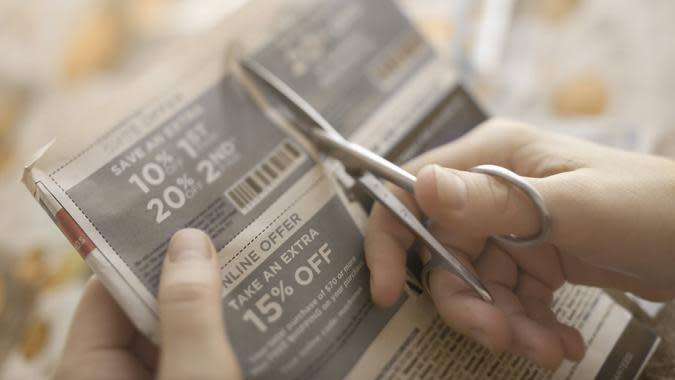
Coupon Clipping
If you have vivid memories of watching your parents or grandparents snipping coupons out of the local paper, you know that coupons can be an excellent way to save money on everything from groceries to back to school supplies to vacation packages. Even if your coupon clipping now happens online, odds are you still find the value – quite literally – in using them.
So, you might be surprised to learn that for some people, using coupons can be seen as a penny-pinching habit attached to lower-income families – at least, according to Critical Financial. However, the publication is quick to dispel this idea: “[Using coupons] demonstrates financial savvy, bargain-hunting skills, and a dislike of wasting money – all of which are practical and positive skills for anyone aiming to spend responsibly.”

Home Schooling
Home schooling may have become more prevalent in some households during the pandemic, but Critical Financial reports that there is still a lingering stigma about families that homeschool:
“Choosing to homeschool can be seen as an indicator of stupidity and lower economic status, especially if outdated religious beliefs or distrust of government are to blame. However, there are several alternative reasons parents choose homeschooling, like personalized education plans and concerns about bullying or social exclusion.”

Using Prepaid Phones
While prepaid phones offer a far less expensive way to communicate than traditional monthly plans – and they’re certainly a cheaper option than phones that come with a lot of apps and bells and whistles – they can be seen as an indicator that you don’t have a reliable or robust income, per Critical Financial.

All-Around Poor Financial Management
If your credit is low and your bank account is overdrawn, you’re getting calls from collection agencies and you still don’t have enough for the bills that are about to become past due, you might be showing overall poor financial management – which Critical Financial reports is associated with being low class.
Find Out: 7 Things the Middle Class Won’t Be Able To Afford in the Next 5 Years

Vaping
You may think your strawberry mango vape pen gives off a delicious aroma, but odds are, your co-workers don’t. The days of coming into the office or any professional environment smelling of smoke are back in the Mad Men era – even if you’re not puffing away on Don Draper’s Lucky Strikes. The phenomenon is world-wide, with London’s Global University conducting a study indicating that vaping is becoming increasingly common with lower socioeconomic groups.
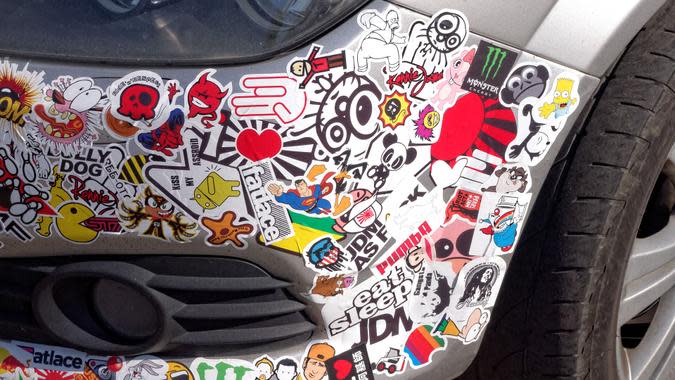
Bumper Stickers
You might think your bumper sticker is an easy way to advertise your values, make a case politically, or even share a joke, but for some people, slapping a slogan on your car is the fastest way to cheapen its resale value. Or they think bumper stickers are simply tacky. After all, the old adage, “you don’t put a bumper sticker on a Bentley” exists for a reason.

Eating Processed Meals, Even at Home
In an ideal world, everyone would have the time and money to prepare delicious organic meals for every meal. Sadly, the realities of cost, convenience, and scheduling make this very difficult for many people. But eating frozen or processed food is still looked down upon as unhealthy and unworthy of people who can afford to do better.
In fact, The Evanstonian reported on the socioeconomic differences in how people eat, with people on the higher end of the spectrum able to enjoy vegan or vegetarian diets and shop at outlets like Whole Foods. People on the lower end of the spectrum might be trapped in food deserts or dependent on buying cheaper foods in bulk.

Wearing Fast Fashion
Fast fashion from outlets like SHEIN and ASOS have become lightning rods of controversy around their labor practices and impact on the environment. As the chorus of voices critiquing fast fashion grows louder, people supporting the brands claim that they are some of the only brands that are uniformly affordable and size-inclusive.
When parsing through the fast fashion dilemma for Vox, writer Izzie Ramierez, distilled the argument clearly.
“Fast fashion is accessible to people of lower incomes, and often accessible to people in a range of sizes — two extensive problems in the fashion industry,” she wrote. “With fast fashion, people who otherwise might not be able to can express themselves through trends.”

Sharing Office Gossip
Taking in a piping hot cup of hot office tea can certainly be a way to break up the workday. But sharing that you think Donna in accounting might have her eyes on the new Director of Finance or that you overheard Rex from marketing getting chewed out by their boss can be seen as a sign of low character – one that can color your teammates’ or employers’ opinions of you.
In fact, the Society of Human Resources Management (SHRM) even has a whole web page dedicated to the pitfalls of office gossip.
Trending: How Much Household Income Will Be Considered Upper Middle Class in 5 Years?

Having a Luxury Car in Poor Condition
When Redditors in the main Ask Reddit forum posed a simple question about the biggest signs that someone was bad with money, several automotive professionals jumped into the conversation.
“I work on cars for a living and the vast majority of the BMWs that come into my shop have slick tires and lights blinking on their dash,” wrote one Redditor. “So many of these people can barely afford a luxury car, let alone the maintenance required to keep them nice and running.”

Buying Lottery Tickets Regularly
While taking your chances at the Mega Millions is understandable, and daydreaming about what you’d do with your fortune is super fun, some people look to the lotto as their only way to get out of debt or rebuild their finances.
Redditors in the Ask Reddit thread about telltale signs of being bad with money cited playing the lottery obsessively or buying multiple tickets at once as a Hail Mary for your bank account as a major red flag financially.

Never Reading Terms and Conditions
One Redditor said that they always know someone is not good with money if they’re constantly taking on more financial obligations without bothering to read the fine print around what they agreed to.
Another Redditor agreed, saying, “I’ve had multiple bank employees and loan officers comment on the fact [that] I was reading the documents myself before they had to read them to me.”

Indulging in Non-Necessities Before Paying Bills
When one Redditor opined that buying phones, shoes, alcohol, and other items before paying your bills is a sign of being unwise and even low class with your money, other Redditors jumped in with their own tales of the people in their lives with shopping addictions or other skewed priorities.

Taking Out Loans To Pay for Vacations
Taking out a loan is a major financial decision with long-term implications for your future. Accordingly, it’s generally reserved for major purchases, like homes or cars, along with lifelong investments like higher education. The thought of racking up loans to hit the beaches in Maui seems like incomprehensibly poor planning — yet several Redditors have observed people doing just that.
Be Aware: 7 Popular Clothing Brands the Middle Class Can’t Afford Anymore
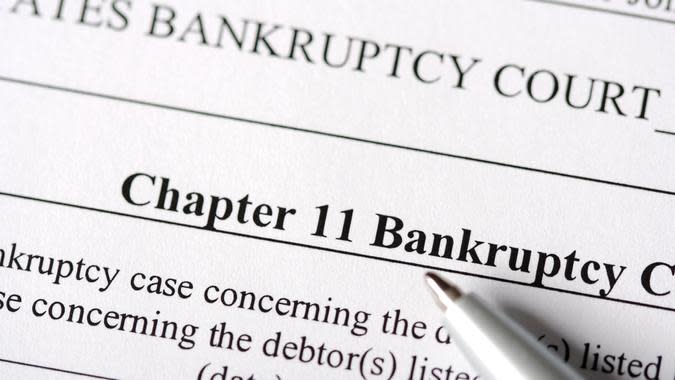
Treating Bankruptcy as a ‘Get-Out-of-Debt Free Card’
Many people are one accident or job loss away from circumstances that might cause them to need to file bankruptcy. Choosing to file for bankruptcy is a serious decision, and organizations like Debt.org encourage you to consider paths like credit counseling or pre-bankruptcy counseling before putting your name on the dotted line.

Getting Cars That Don’t Suit Your Lifestyle
Unless you’re an off-roader in your off-hours, odds are you don’t need the largest, most expensive SUV. If you don’t count racing as a hobby, you also probably don’t need a car that Mario Andretti in his heyday would have loved.
“We all have to drive the same speed limit. You can’t even legally use all of the power of the average Toyota Corolla let alone a sports car. You just pay more for insurance, maintenance, fueling, and repairs,” quipped one Redditor.

Wasting Food
Letting perfectly good leftovers go to waste isn’t just poor etiquette, it’s also a sign of poor financial management – especially when the cost of groceries remains high and turning to Door Dash is so unnecessary.

Neglecting Crucial Home Repairs
Whether you’re hoping to sell your home again or simply don’t want to live in a space that doesn’t work properly – water draining through the living room doesn’t exactly add ambiance – you need to prioritize home repairs.
One Redditor recounted the story of their friend’s father who left a sink broken for years:
“My childhood friend had a broken sink for about 10 years. It had a hole in it so the water would flow into the ceramics. Meanwhile his dad kept finding new expensive hobbies that he never did anything with. He bought an entire forge at one point for thousands or euros and never really did anything with it.”
More From GOBankingRates
This article originally appeared on GOBankingRates.com: 50 Financial Habits Seen as Lower-Class in Today’s Society
Credit: Source link




